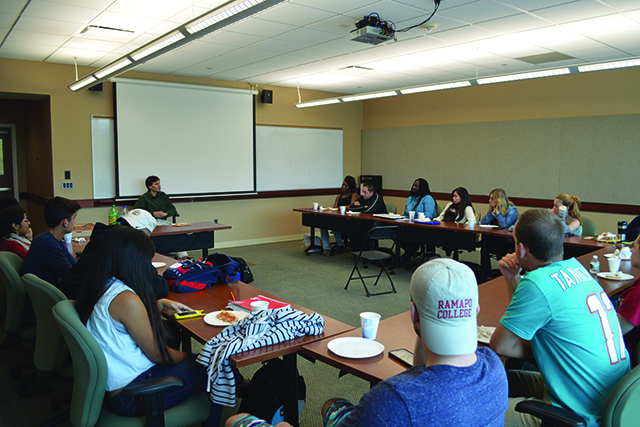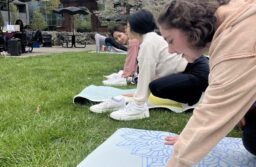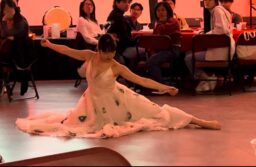
Photo by Hope Patti
In the latest deliberation by the SCOTUS discussion group, Dr. Paul Deck, professor of sociology at Ramapo College, brought the group’s attention to police brutality and its relation to legal precedents and processes.
Deck first brought up a few legal cases relevant to the subject of police brutality, specifically the ruling of Graham v. Connor. According to Deck, this subsequent ruling detailed, “That in cases dealing with police brutality, you need to consider the reasonable officer’s position, look through their perspective.”
Deck then asked students about what implications they seem to derive from the ruling in terms of ease or difficulty to indict officers for police brutality.
“It gives an advantage to the police version of events,” said Angelo Caruso, citing how normally in legal disputes both parties’ narratives of the events are given credence and weighed against the available evidence to see how it confirms or contradicts the tales.
Deck then provided two notable examples in order to highlight what he considered to be the issue and bias in police brutality cases.
Victoria King, a black college student, was pulled over by an officer in Florida due to a mechanical issue with her car. She only had the window opened partly to exchange licenses, registration and communicate with the officer. When the officer asked her to roll her window down completely, she refused to comply. The officer then broke through the glass and arrested her. King was later charged and found guilty of resisting arrest.
Deck then asked the audience to consider the differing perspectives in this incident.
Caruso defended the officer’s actions stating that, “The officer asked her to put down her window, she refused. The officer saw it as a threat due to the window obstructing his view. Therefore, he had to break down the window.”
“What purpose did he have to break the window that wouldn’t be accomplished by simply asking her what she was doing with every movement?” argued freshman Melissa Bradht. “Not to mention, she was reasonable in acting suspicious of the officer due to the recent happenings with Sandra Bland, and the broken glass could have severely hurt her.”
A similar back and forth dispute happened in Deck’s second example, which detailed a black man acting as a legal vendor approached by two undercover officers during a drug sting. When the man refused, he charged at the officers who responded with deadly force.
Deck’s examples built up to his notion that “the legal process protected judicial actors such as the police as defendants and juries from accountably” which made it difficult to prove police brutality as a result of racial discrimination.
dirons@ramapo.edu





